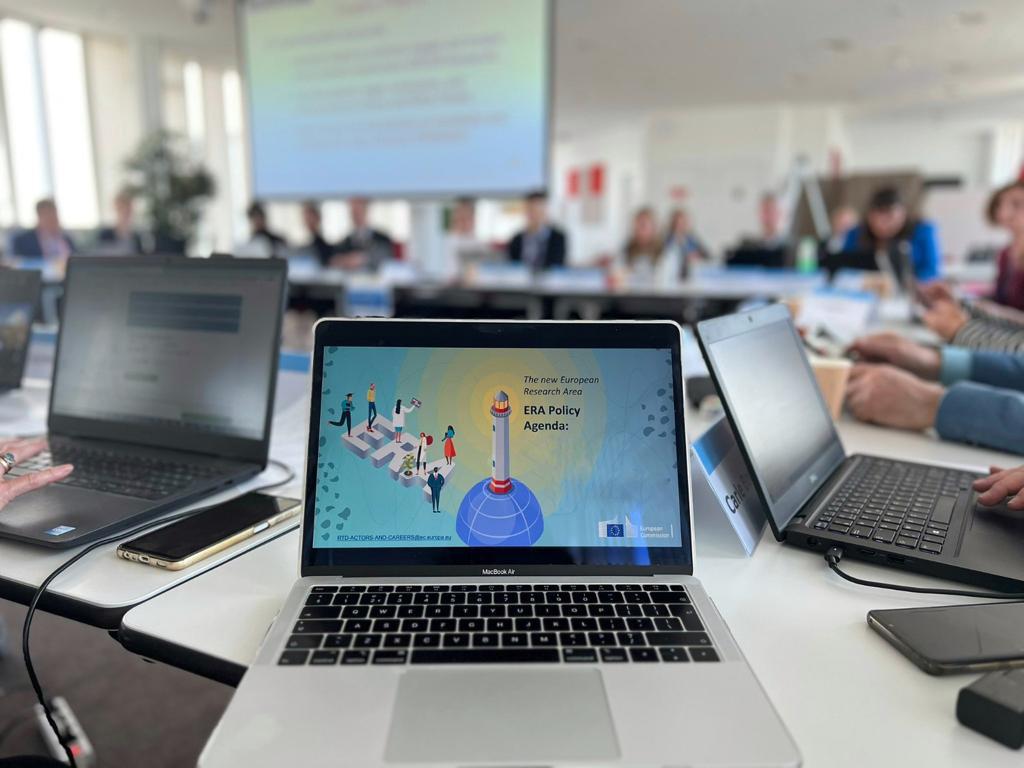As the current ERA Policy Agenda and its actions are in full implementation mode, the ERA Forum is already at work to co-define the next ERA Policy Agenda 2025-2027. A gap analysis took place in May 2023 to identify strengths and pitfalls of the current agenda and new actions started being proposed over the summer. While the speed of the process proves the proactiveness of the ERA Forum in advancing the ERA, a moment of reflection is needed to make sure that the next Agenda integrates the lessons learnt from its predecessor.
The ERA Forum of 26 October will discuss, among others, the timeline and process towards the next ERA Policy Agenda. But for the new ERA Policy Agenda to have a strong foundation, we first need to lay build on the current one and strengthen its basis. This means reaching a clear common understanding of what to do with the current actions, reflect on the progress made, see whether some activities should be continued in the next Agenda and only then, assess whether completely new actions are needed, or whether new actions should integrate complementary activities from the current ones.
YERUN reiterates its previous position on the need to first assess the continuation of existing Actions, and then lay out a plan for the next Policy Agenda 2025-2027. In light of this, YERUN welcomes the 9 October ERAC decision to extend the timeline for the adoption of the ERA Policy Agenda 2025-2027: indeed, more time is needed in the co-creation process towards the identification of new Actions considering the possible integration of the current ones.
The gap analysis done in May 2023 came at a premature moment, when it was too early for the parties involved to assess the development of the 20 actions that, in most cases, had just started. Focusing primarily on the areas of the Pact that were not covered by the current Policy Agenda, the gap analysis did not provide a thorough reflection on the need to potentially translate some actions that have a long-term approach into future policy agendas.
Therefore, it is only now that we are having a good understanding of how actions are proceeding and that we are in a good position to reflect on the current actions, their outcomes and needs or possibilities, to be continued or not. This reflection process is not duly taken into account and this should be improved.
Silvia Gomez Recio, YERUN Secretary General
Consequently, the new actions elaborated over the summer upon request of the ERA Forum were developed without considering a possible integration of activities attached to the current actions. This is why the ERA Forum of 7 July agreed that the state of existing actions would be assessed at a later stage, in October. However, that assessment has not been done yet, while the focus on the new actions is increasing.
The 26 October meeting should not miss the chance to redress this direction and ensure that sufficient time is allocated to discuss current actions and assess their potential continuation without rushing into trying to merge new actions with existing ones. Let’s take the time to reflect and assess the work we do to build a solid foundation for our work in the future. We believe that an open discussion and common reflection on how to proceed with the actions of the current ERA policy agenda is an integral part of the co-creation of the next one and should not be dismissed or postponed further.
We therefore call for a reassessment of the process with the inclusion of a dedicated reflection time on the current actions, first to understand what outcomes will be ready by the end of 2024 and then to assess whether there is a need for their continuation (and if so, how to do it).
This process should involve all members of the ERA Forum and could take place in the ERA Forum meetings planned for 16 November and 13-14 December. Further pitches of the new proposal could be postponed to mid-January once it will be clear for everyone how the current actions can inform the new ones.
We therefore propose to take advantage of the ERAC’s decision and extend the deadline to mid-January for the next explanatory documents (instead of the 6 December) and to dedicate the meeting in February to the presentation of all the actions, updated considering the reflection made on the current actions.
As the French saying goes, “reculer pour mieux sauter”: a little step back will help us take a much longer jump into the next ERA Policy Agenda.
.










